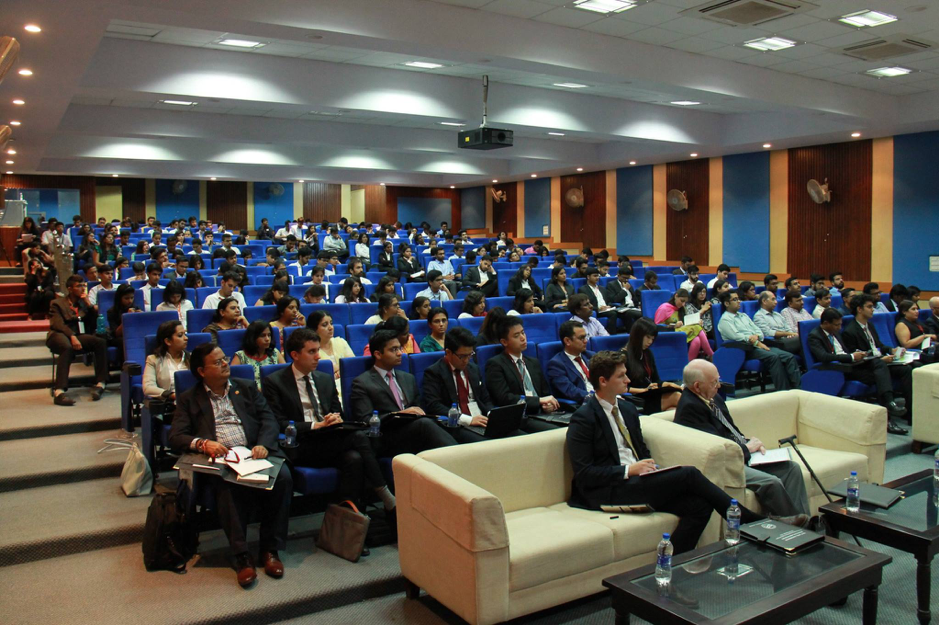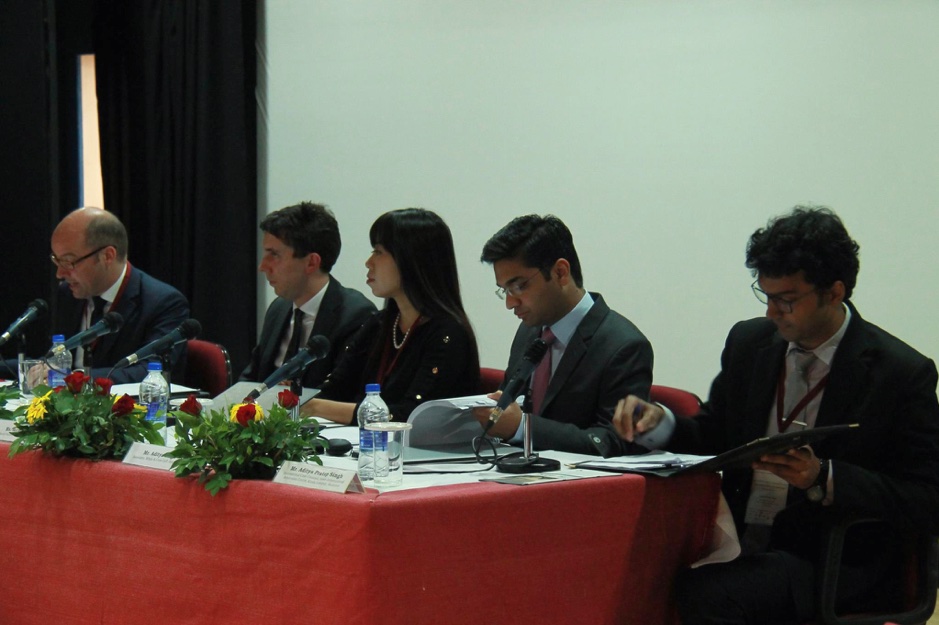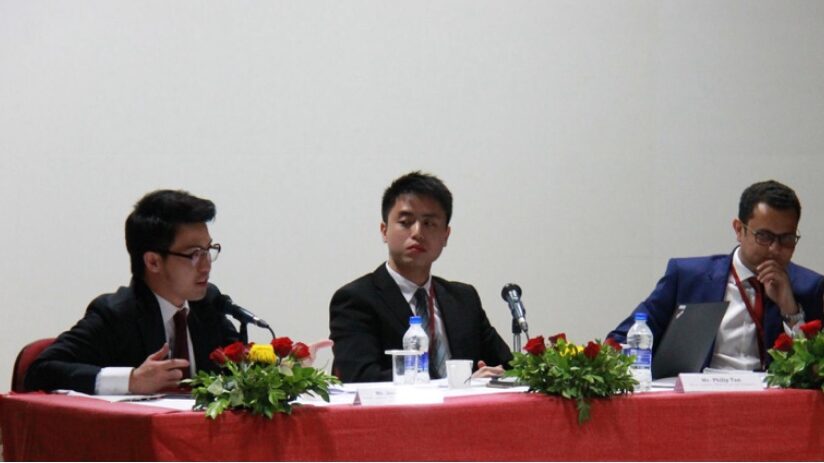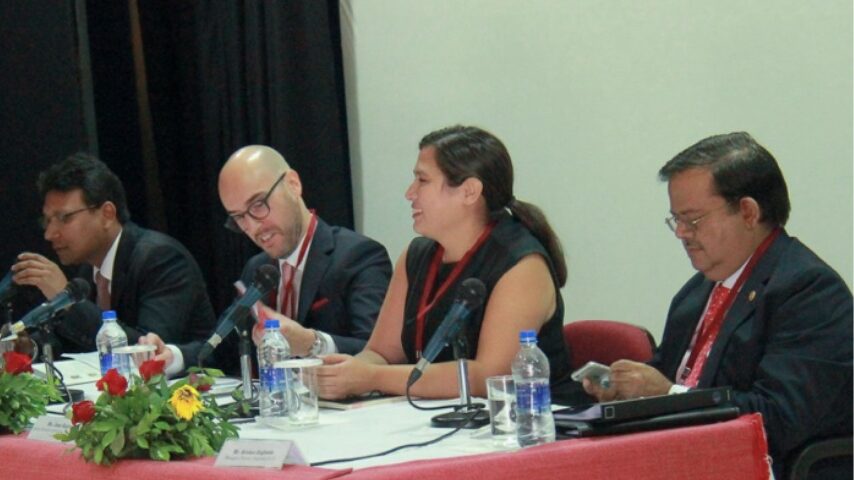The Indian Journal of Arbitration Law (IJAL) and the Centre for Advanced Research & Training in Arbitration Law (CARTAL) organised a two day conference on International Arbitration on September 29 and 30, 2018. The conference was institutionally supported by CC, HKIAC, AFIA, MCIA, CiArb, AAA, ICDR, AIAC, VIAC, UNCCI, Bar Association of India, and Society of Indian Law Firms.
The theme of the 3rd CARTAL Conference was “Winds of Change: Securing Harmony in Arbitral Practice”. Through the course of arbitration, winds of change have been the driving force in the evolution and modernisation of arbitral practice world-wide. The aim of the conference was to explore the major winds of change: the Investment Court System, Legislative, Jurisdictional and Institutional winds of change.

The Conference began with the Inaugural Ceremony. The Welcome Address was delivered by Prof. Poonam Saxena, Vice Chancellor, National Law University, Jodhpur. She iterated that it is essential for law schools and the members of the legal fraternity to come together and discuss vital arbitration issues. She expressed her gratefulness towards the Institutional Partners for the support of these incredible institutions who have brought our conference to fruition.This was followed by an introduction to CARTAL, IJAL and the Conference that was delivered by Dr. Nidhi Gupta, Executive Director, CARTAL. Before inviting Dr. Blanke for the keynote address, Dr. Gupta summarised the themes of the last two editions of the Conference. She briefly discussed the theme of the 3rd CARTAL Conference and said that the changing trends of international arbitration can have a major cascading change on institutional arbitration, international investment relations and the laws relating to arbitration globally.

Mr. Aditya Pratap Singh spoke about the challenges faced by the ISDS and the effectiveness of the ICS in its place. Throughout the panel discussion, there were two views regarding the ISDS ISDS. According to the first popular view, the current ISDS mechanisms have ended. The ad hoc nature of the current system and the lack of an effective appellate review mechanism raise significant concerns such as the lack of consistency and predictability, limited systemic checks on correctness, the nature of appointment process impacting the outputs of the adjudicative process, the significant costs, and the lack of transparency.
The second panel discussion was themed “Cross Institutional Consolidation of Arbitration: The Road Ahead”. The Panellists for this discussion are Mr. Ajar Rab, Partner, Rab & Rab Associates LLP, Dehradun, Mr. Jonathan Lim, Senior Associate, William Cutler Pickering Hale and Dorr LLP, London and Mr. Philip Tan, Senior Associate, White & Case LLP, Singapore.

Mr. Jonathan Lim set the groundwork for the discussion by introducing the general concept of consolidation of proceedings and the evolution of the SIAC Protocol on the same. The panellists answered the questions of whether the protocol addressed a real or a perceived problem and if it in face proved legitimate, what would be the various criterion to consolidate, how would the arbitration then be administered and what are the various concerns that could inhibit parties from making provisions for consolidation in their contracts.
Day 2 started with the last panel of the conference with the theme of “Guerrilla Tactics in International Arbitration: Where to Draw the Line?”. The Panellists for this discussion are Mr. Abhinav Bhushan, Director, South Asia, ICC Arbiration & ADR, Mr. Paolo Marzolini, Partner, Patocchi & Marzolini, Geneva, Ms. Jane Rahman, Senior Counsel, Arbitration Team at Al Tamimi & Co, Dubai, and Mr. Krrishna Singhania, Managing Partner, Singhania & Co.

The panellists addressed questions such as who should be charged with the responsibility of regulating such guerrilla tactics, the difference in the employment of guerrilla tactics in international commercial arbitration, the ISDS mechanism and the possibility of whether such tactics can constitute grounds for setting aside or annulment of the award to serve as a deterrent for the parties.
The 3rd Annual CARTAL Conference concluded at 11 AM on September 30, 2018 with the closing ceremony.
